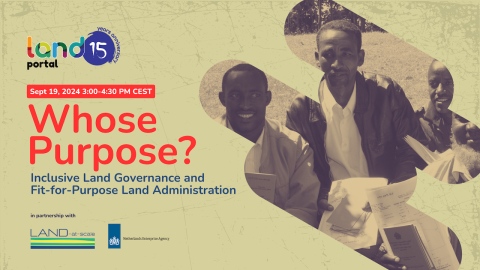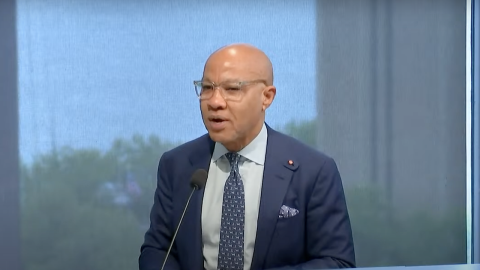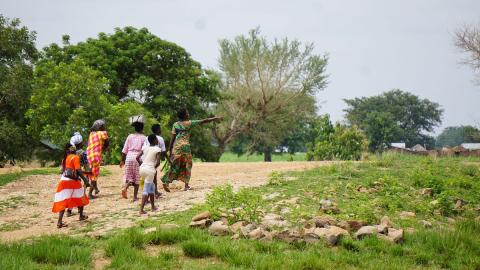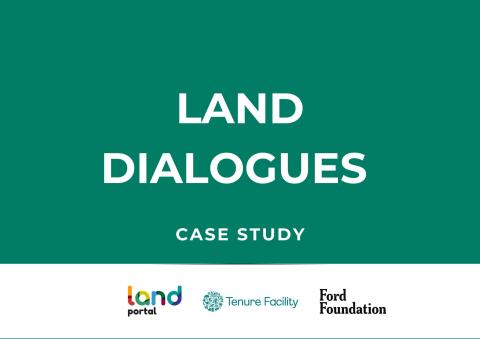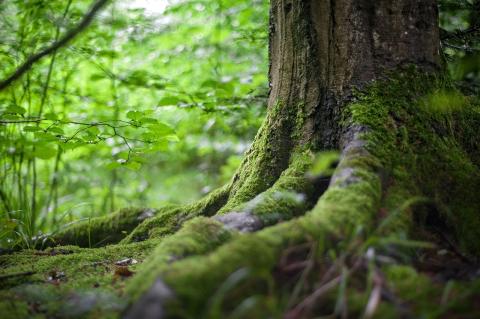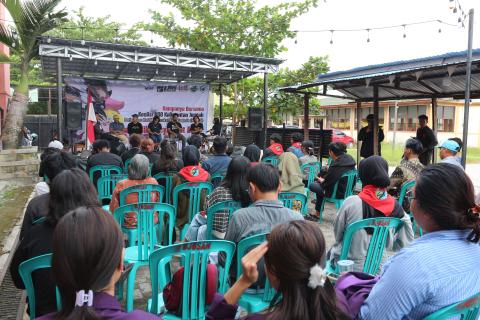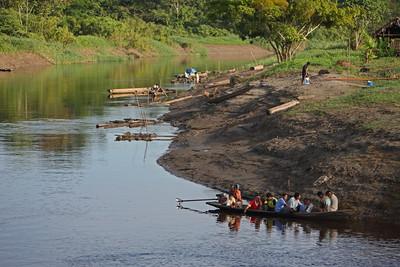Discover hidden stories and unheard voices on land governance issues from around the world. This is where the Land Portal community shares activities, experiences, challenges and successes.
 Follow our
Follow our
Sustainable Development Goals
Blog Series!
Interested in land corruption?
Follow our Land & Corruption Blog Series
for in-depth perspectives from the experts.
Issues
Geographical focus
The webinar Inclusive Land Governance and Fit-for-Purpose Land Administration: Whose Purpose?, which took place on 19 September, 2024, explored how a people-centered and holistic approach can transform Fit-for-Purpose Land Administration (FFPLA) and ensure that land administration truly serves the needs of communities. The webinar, which was moderated by Imke Greven of the LAND-at-Scale Program Advisor at the Netherlands Enterprise Agency (RVO) gathered over 275 people.
On September 23, 2024, a powerful hybrid event titled "From Commitment to Action: Enabling Direct Funding for Indigenous Peoples in Multilateral Climate and Biodiversity Initiatives" was hosted at the Ford Foundation headquarters in New York City as part of Climate Week.
The Land Dialogues nurture a community of trust with Indigenous peoples, local communities, and Afro-descendent peoples by producing webinars that bring unlikely voices and perspectives together. Next week, The Land Dialogues will head to New York Climate Week 2024, where the webinar will be presented live for the first time in its four-year history. Read more below about how the series began and expanded, and join us for the next dialog.
Magic Comes to Life
Central to the oral history of the Santo Madero community is the legend of a miraculous tree that fell in a violent storm only to reappear a few days later, upright and green. The event, which reflects the magic realism that Colombia is known for, has evolved into a vital part of local folklore and is celebrated by the Afro-Colombian community every year.
In Burundi, a small landlocked country in Africa's Great Lakes region, land is far more than an economic resource – it is the foundation of history, livelihood, and identity for millions. However, Burundi's turbulent past, marked by cycles of conflict, displacement, and return since the 1970s, has created a complex web of competing land claims that threaten efforts to build lasting peace and stability.
It’s a bumper year for citizens of the world to participate in their own governance. Elections are happening almost every other week. Record numbers of countries are holding presidential or parliamentary national or local elections, in democracies and in less democratic political systems. Governments are turning over, expectedly or unexpectedly, or becoming entrenched. Electorates are turning out in great numbers, to punish or endorse, or voting out of the system by staying home.
A Strategic Pivot for the Sustainable Development Goals (SDGs) Promise
Inclusive land governance is critical to securing land rights and achieving the Sustainable Development Goals (SDGs). Secured land rights are foundational for sustainable development, with the access, control and use of land presenting significant responsibilities for governments and their legal systems. Equitable land governance ensures fair access to land, which drives economic growth, reduces poverty, and promotes environmental sustainability.
Photo: Kandukuru Nagarjun, via Flickr, CC BY 2.0
The recent series of ALIGN articles shed light on how civil society, impacted communities and rights defenders across the world have used strategies such as legal action, publishing of mining contracts and stakeholder dialogues to change approaches to land-based investment governance.
Ibrahim has lived on the outskirts of Kenya’s capital city since he was born, 71 years ago. Five generations have lived, loved, studied, worked, and built their homes on this land. He is Kenyan. Proving that to the government and asserting his rights as a citizen, however, has been a life-long struggle.
By: Juana Vera - Delgado
Blog originally published in Common Dreams

